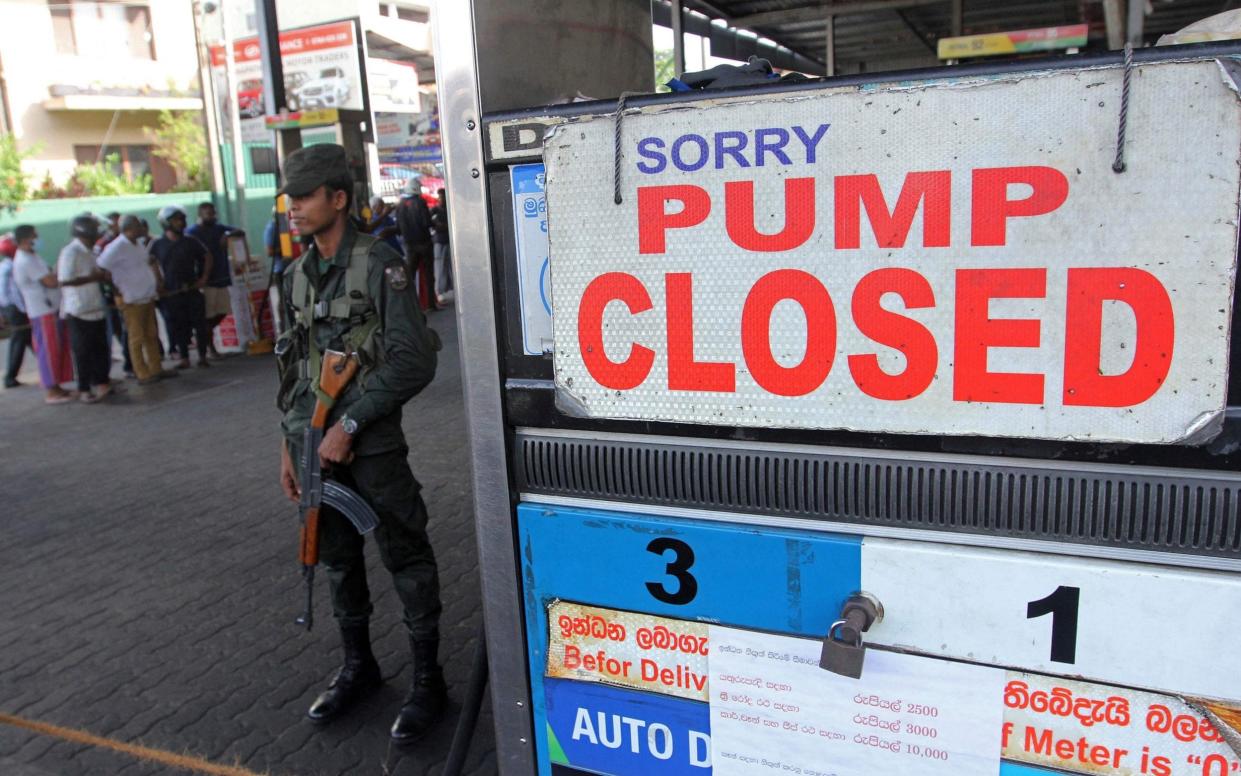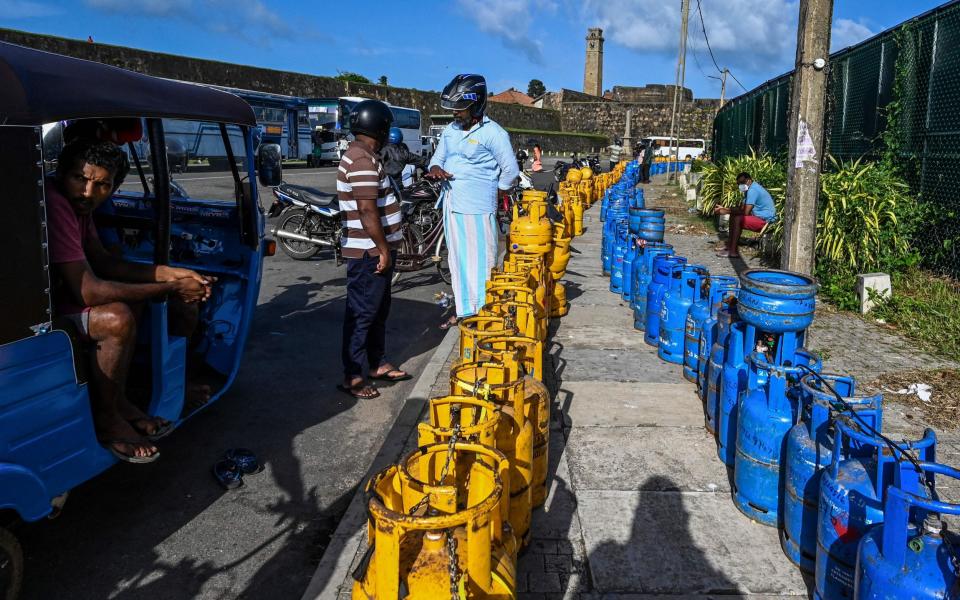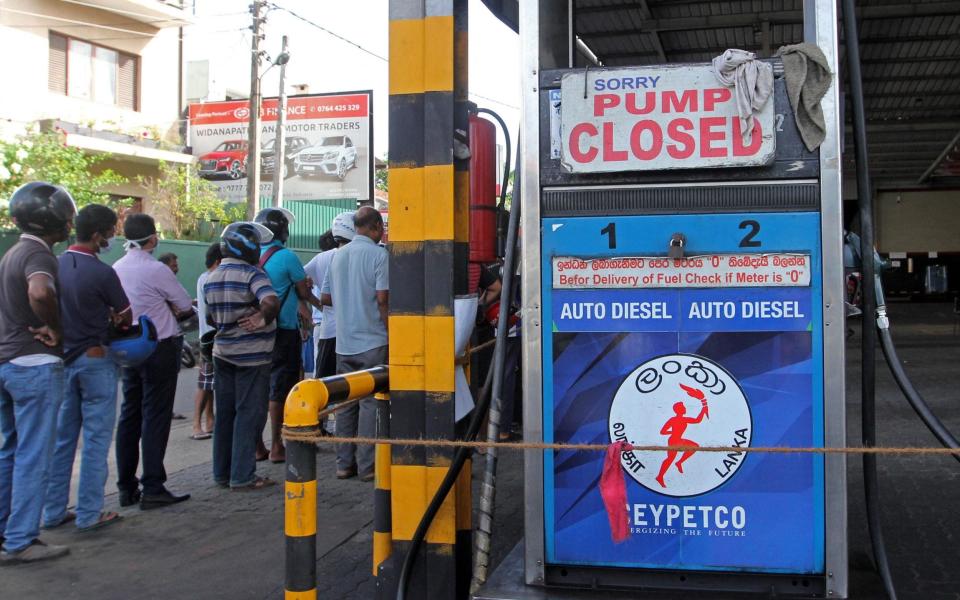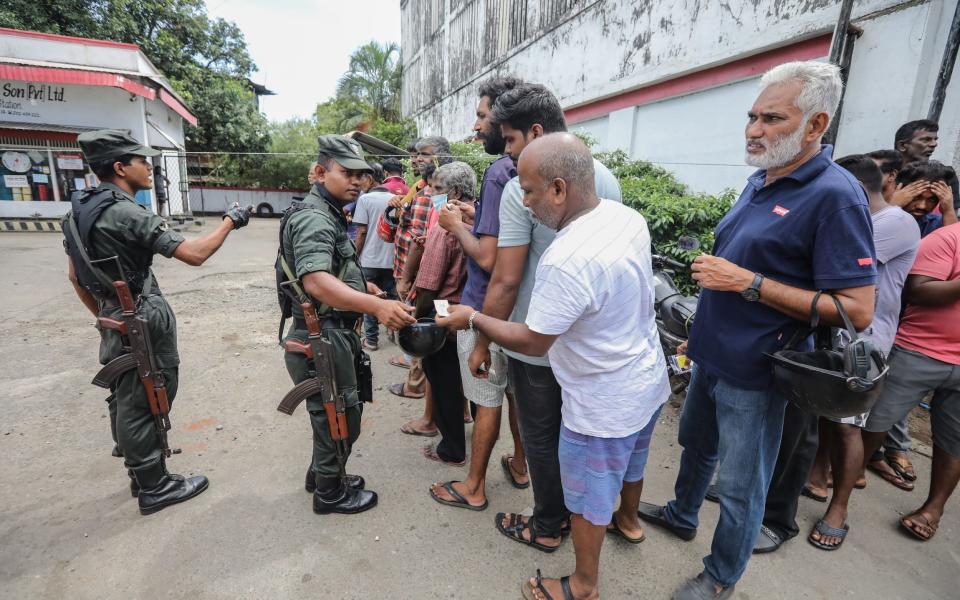Sri Lanka bans sale of fuel for non-essential vehicles

Sri Lanka has suspended the sale of fuel to all non-essential vehicles and is stockpiling its limited remaining supplies to keep its emergency services running, as the worst economic crisis in the country’s history continues to deteriorate.
For the next fortnight, only buses, trains and vehicles used for medical services will be able to fill up with fuel.
Colombo, the capital, also announced that schools would be closed for a further two weeks and private sector employees have been asked to work from home to preserve fuel and diesel stocks.
“Sri Lanka has never faced such a severe economic crisis in its history,” said Bandula Gunewardena, a spokesman for the Sri Lankan cabinet, on Monday evening.
Colombo owes over £41 billion to international lenders but only has around £40 million in the bank, meaning it has been unable to import fuel supplies. A credit line from neighbouring India has now run out.
Last week, there were several reports of violent clashes between motorists and the police at petrol pumps as citizens who had been waiting for up to five days to refill their vehicles were informed supplies had finished.

Healthcare professionals complain that they are unable to fill up their vehicles to travel to work and are having to skip shifts in hospitals. Dr Vasan Ratnasingam, a spokesman for the Government Medical Officers’ Association (GMOA), the country’s leading public health body, told The Telegraph up to 70 per cent of doctors were currently unable to commute to work.
It is also unclear how Colombo plans to transport essential goods across the country now that fuel has run out, carry out cremations in the Buddhist-majority country or power its hospitals.
Its garment industry, one of the country’s last remaining sources of foreign currency exchange, also says it only has enough stockpiled fuel to meet orders for one more week.
Now, many Sri Lankans fear renewed, nationwide violence could break out with citizens essentially confined to their homes without access to fuel and access to food and life-saving medicines are also limited.

Meanwhile, food costs continue to spiral with food inflation reaching 57 per cent, meaning many lower and middle class households are unable to purchase protein sources, vegetables or fruit, surviving on small daily meals of rice.
The United Nations estimates that one-quarter of the total population needs urgent humanitarian assistance and up to 70 percent of households are being forced to skip meals.
With a bailout from the International Monetary Fund believed to be several months away, the UN has launched a £33 million humanitarian aid fundraising programme for Sri Lanka.
Sri Lanka is suffering its worst economic crisis since its independence, with foreign exchange reserves at a record low of $1.92 billion, according to the Central Bank, though analysts estimate a lower level of useable funds.
The government closed urban schools for about two weeks from Tuesday and allowed fuel supplies only to services deemed essential like health, trains and buses as stocks would only last only a week or so based on regular demand.

Ranil Wickremesinghe, the prime minister, told parliament this month that Sri Lanka needed about $5 billion to pay for imports including fuel, fertiliser and food.
The government is in talks with the International Monetary Fund on a bailout but many people cannot wait and the demand for passports has surged as people look to opportunities abroad.
The navy said it detained 47 people, including seven children, off the west coast late on Monday as they attempted to illegally migrate to Australia.
More than 120 people have been stopped in the past two weeks while trying to leave the country in small boats.

 Yahoo Movies
Yahoo Movies 
